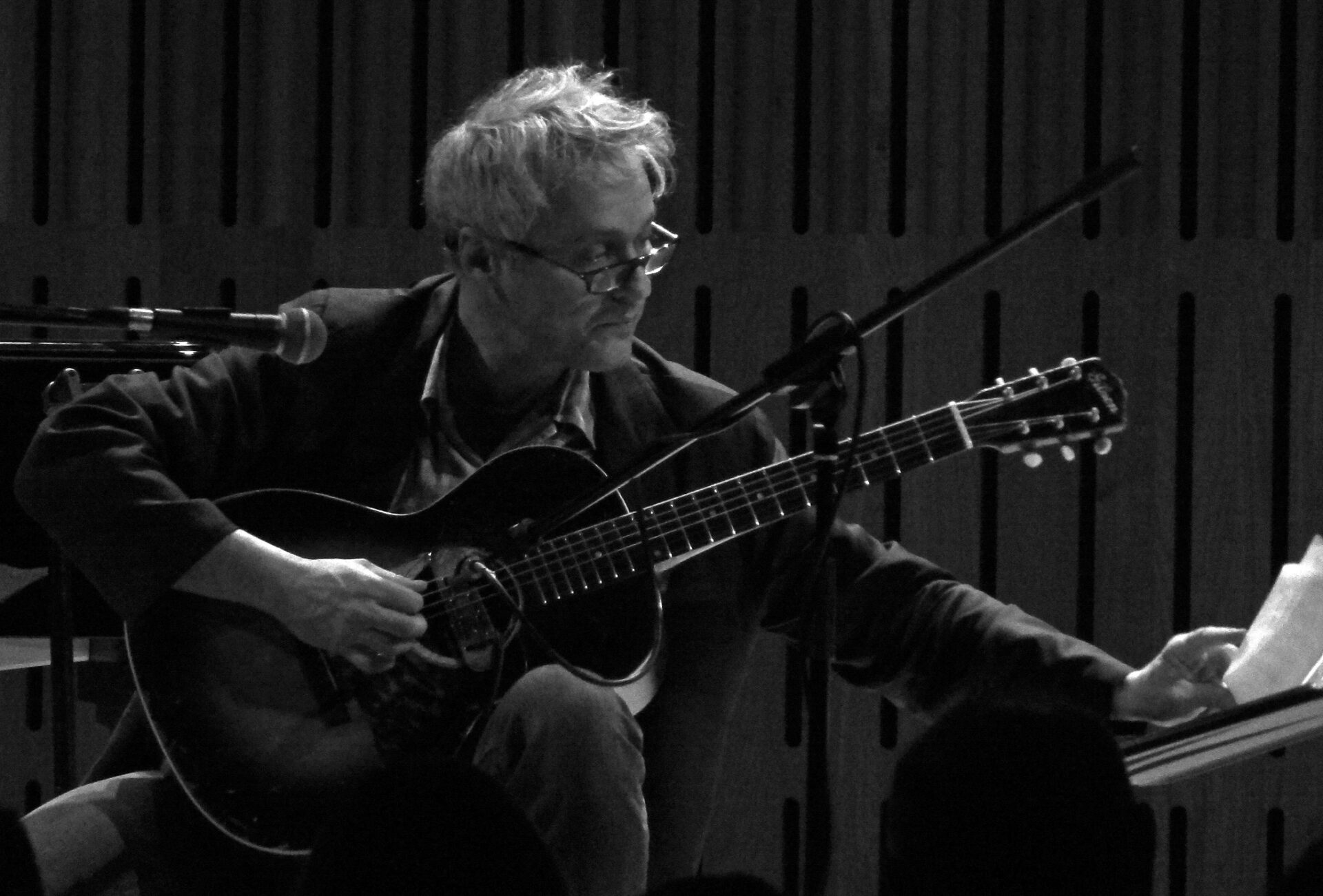This was a most rare opportunity to catch Marc Ribot – composer, musician and long-time artistic collaborator to a veritable who’s who of luminaries from Tom Waits to Susana Baca to John Zorn – performing solo guitar in the United Kingdom. Judging by the steady stream of people making towards the Grand Theatre’s exit doors long before the end of this evening’s performance, it is probably one they wished they had passed up on.
And yet it had all seemed to start so well. The first part of his set was given over entirely to material taken from his 2010 album “Silent Movies”, a record of pieces – songs would not be an entirely accurate descriptor here – that found Ribot creating his own musical accompaniments to some of his favourite films (e.g. Charlie Chaplin’s The Kid) or motion pictures for which he had composed the score (e.g. Natalia Almada‘s documentary El General and the film Drunk Boat).
Film music was once described as “audible silence” and this is clearly something Mark Ribot strives to create in what he refers to as being the space between sound and image. In seeking to achieve this tonight, though, Ribot does regret the fact that due to instructions left in Chaplin’s will forbidding any music other than the original score being used with his films, he was unable to perform in front of a screening of The Kid. And you do sense that without any relevant visual stimulation, some of the finer nuances and detail of Ribot’s music can get lost. But what does remain on The Kid is his innate ability to convey the movie’s anguish of abandonment, the passing of time and the deep yearning for a reunion, whilst during Requiem For A Revolution he can relocate the listener to the repression of 1930’s Mexico and a then bloody war with the church, all through the six strings of his guitar. Ribot achieves all of these moods and feelings with remarkable dexterity and technique as he weaves spell upon spell across a range of styles that encompass flamenco, blues, jazz and classical.
It is when Ribot strays from this more conventional path – as he is regularly prone to do through improvisation – that the results obfuscate. The latter stages of his set lose focus as his playing veers onto a more free, avant-garde trajectory and without the necessary stage presence or charisma – with his outsize jacket, tousled hair and glasses perched on the end of his nose his appearance owes more to that of a college professor than a performing artist – he seems unable to hold some of the audience’s attention. There can be no question about the man’s talent, but you do feel that it may be forever better suited as an essential catalyst and inspiration when cast in his regular supporting role with others.




